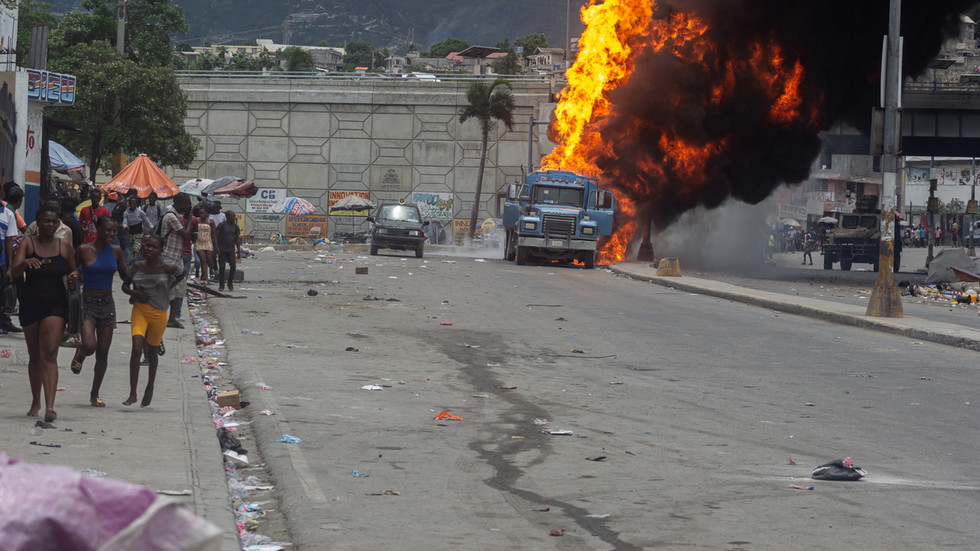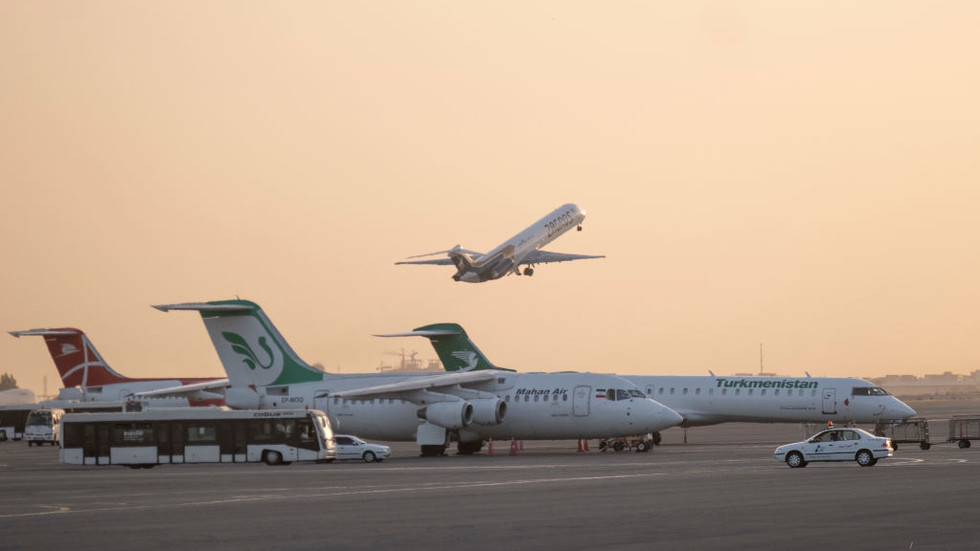Residents and officials in Ukraine’s most dangerous region remain concerned about whether Russia will honour its word when it comes to stopping the brutal violence.
World leaders have been pushing hard for a ceasefire ahead of Thursday’s direct negotiations between the two sides in Istanbul.
A European delegation, including Keir Starmer, visited Kyiv last weekend to present a plan for a 30-day pause to the fighting, while US President Donald Trump suggested he would join the talks if Vladimir Putin attended.
However, the Russian leader ignored all requests in the build-up to join the meeting, including those from his opposite number, Volodomyr Zelenskyy, and sent a junior delegation.
In the Kharkiv region, where daily battles between the two sides rage, suspicions remain that any break in hostilities from Vladimir Putin’s forces will be used strategically.

Some parts of Kharkiv have been completely destroyed (Image: Sasha Lunina)
Lt Col Roman Myrnyi, a deputy battalion commander of the Khartia Brigade, said that, so far, every ceasefire announced by the Russians had not been honoured on the front lines.
“I know myself that the Russians’ words are one thing and their actions another,” he told the Express.
“The recent three-day ceasefire [announced to coincide with a big parade in Moscow for World War Two] was always a strategic move designed to generate publicity.
“On the ground, we didn’t feel it. Every day, we were fighting off drone attacks, working to save lives and protecting our supplies.
“This was not just my experience, I have friends that I talk to in other areas and they also said Russian attacks continued.”
Speaking from his secret command post, where he oversees efforts to force back Vladimir Putin’s troops, Myrnyi was not planning on making any concessions.
“I support President Zelenskyy in every way,” he added, “We will be there until the very end because victory is not decided by what someone says, it takes place on the battlefield.
“We will, as a military, stand and defend our country and won’t give up. We will keep taking back Ukrainian territories with minimal losses.
“Back in 2022, we were left all alone, with a little help from America providing some ammunition, yet we stopped the offensive with our own forces.
“After we showed our effectiveness, the Europeans and Americans began to help more and more.”

Valentyna (L) ,70, and Faina (R) , 77, walk through Saltivka every day they describe is as being 'be (Image: Sasha Lunina)
Konstantin Batotskiy, a Ukrainian political consultant and former top-level adviser, agreed with Myrnyi and highlighted more than a decade’s worth of Russian promise-breaking in Ukraine.
Ceasefires, he said, had a long history of failing to materialise into anything substantial.
“The problem is that it has never worked in reality because you cannot have a ceasefire on a front line that is many hundreds of miles long, it’s impossible to monitor.
“What always happens after an announcement is that there is some shady operation, someone starts shooting at the other side
“Personally, I am exhausted from talking about ceasefires because there is never any use for it. I know exactly what will happen. Putin will announce it; there will be some provocation, Russia will say it must respond to it, and then it just goes back to [the same situation].”
As negotiations continue to drag, life in the regions on the front line continues. People sip coffee as the air raid sirens whine outside and walk their dogs through the wreckage of their neighbour's homes.
At the start of the full-scale invasion, the city of Kharkiv was bombarded by the Russians in a failed attempt to take the city.
In the three years since, the city has been shelled to pieces, and its pre-war population of two million has almost halved.
The destruction visible on a walk through Kharkiv is arresting. There are shopping centres and apartment blocks with crushed roofs, and small suburban homes have been sliced in half.
Nowhere, it seems, in the city is safe from attack, as international journalists discovered in 2023.
A host of experienced media professionals, many of whom had covered wars in Syria and Iraq, were staying at the five-star Kharkiv Palace Hotel in the city centre. They were convinced it would not be targeted because it was well-established that the high-rise glass structure was where international journalists and humanitarian delegations stayed.
But in December 2023, a Russian rocket smashed into the side of building, hospitalising twelve people, including the two children.
Research by Reporters Without Borders later suggested the attack was part of a wider strategy targeting hotels where journalists were staying in a deliberate attempt to “silence the media and restrict independent coverage of the war.”

Oleksandr Lisovuy, 64, is one of the few residents who lives in the Saltivka neighbourhood (Image: Sasha Lunina)
No neighbourhood remains unscathed by Russian attacks, but some have been almost obliterated.
Saltivka, once a bustling residential district filled with young families on the outskirts of the city, has been transformed into an eerie ghost town.
Apartment blocks that once housed thousands of people now lie empty, blown open by drone and rocket attacks. Piles of the abandoned lives lie in stairwells; trainers and handbags, kitchen utensils and piles of paperwork.
“I have lived here for thirty years,” said Oleksandr Lisovuy, 64, looking out at the children’s playground, where roundabouts are still choked by overgrown weeds.
“This is where my children and grandchildren play, and over there is the school they studied at.”
Only the ruins of the elementary school, which once had hundreds of students, remain. They lie opposite a nursery hollowed out by missile strikes.
Lisovuy added, “It was nice here. But when this war began, on the very first day, we left.
“But we are not people who give up. I came back.”
Lisovuy vividly remembers the wreckage he returned to find. “It was all rubble, everything was broken. Walking through it was like climbing mountains; broken cars, wires, and stones were all around.
“I started to repair my apartment and it’s been possible to survive. I have been living here for a year now.”
Life in a crumbling ghost town can be a lonely experience, but Lisovuy believes the lack of activity offers some form of protection from Russia’s regular aerial bombardments.
“Missiles fly past here. There are just a few people. So there is no reason for them to target us,” he said.
Friends Valentyna,70, and Faina, 77, take a regular morning walk around the neighbourhood ruins, observing the extent to which buildings are crumbling to the ground where once they watched the neighbourhood wake and head to work.
“We had one friend who stayed here through the whole battle,” Valentyna said, “she lived in a school basement.
“We decided to return after 6 months, and we were happy to do so. When you are staying somewhere else, it doesn’t feel like home.”
The pair discovered trenches and barricades in the streets around their houses, walls were peppered with bullet holes.

Dmytro Oliinyk, 30, pictured in the school ocupied by Russian soldiers during in the defence of Khar (Image: Sasha Lunina)
“It was really, really sad,” Faina added, “this was such a beautiful neighbourhood before. Even now [with all this destruction], people are planting flowers. But the buildings have been destroyed so badly that they will be demolished.
Unlike Lisovuy, Faina did not feel safe being in Saltivka when it grew dark and the Russians trained their sights on Kharkiv.
“It is very scary when you are walking alone at night,” she added.
Reminders of how close Putin came to capturing the city are everywhere.
One of the most striking is School No. 134 — a ruined brick building that still stands on one of Kharkiv’s main streets, scarred by the brutal nine-hour battle fought there after it was temporarily seized by Russian troops.
That battle changed Dmytro Oliinyk’s life forever.
He was the commander of a group of Ukrainian volunteers who mounted a fierce defence against elite Russian soldiers. Unlike his opponents, Oliinyk, 30, and many of his comrades were civilians just weeks before.
But they had an advantage: since 2021, he had been organising military training for Kharkiv residents — preparation that proved vital when the Russians launched their attempt to occupy the city on February 27.
Thousands of people took up arms that day.
“Despite everything, we managed to hold the city with dignity and honour. It shows that hope must never be lost,” he said.
During the battle, a shell fragment struck Oliinyk’s leg. He now walks with a bionic prosthetic and lives with constant pain. A bullet also narrowly missed his head — a reminder of how close death came.
Living under near-daily shelling, he believes only bold, united global action can change the course of the war.
“World War III is entirely possible if the world fails to realise the need to unite in order to contain Russia,” Oliinyk warns.
He insists that minimal aid is not enough. If NATO remains unwilling to offer membership, Ukraine must seek alternative security guarantees.
“One option is to form a new alliance with the Baltic states,” he says.
Oliinyk is also sceptical of the European Union’s ability — or willingness — to confront Russian aggression.
“The EU is not ready. And some of its members, like Hungary and Slovakia, openly support Putin, who is killing Ukrainian children,” he says.
While no European country wants its citizens to be drawn into war, he believes they may have no choice if Russia is not stopped in Ukraine — now the outpost of the free world.
Kharkiv remains under constant threat. Just 20 miles from the Russian border, it has already endured one attempted invasion — and nothing on the front lines suggests the Kremlin has given up.

 1 month ago
24
1 month ago
24










 English (US) ·
English (US) ·